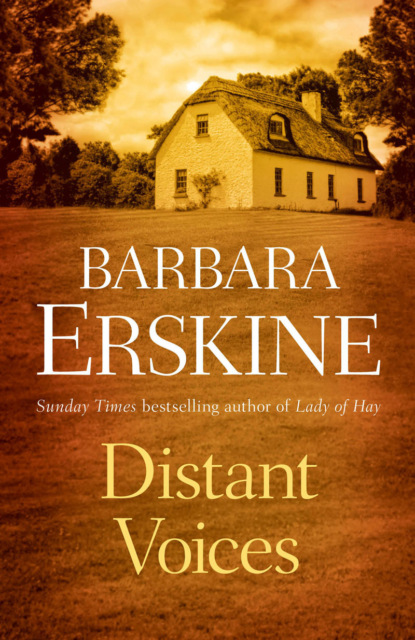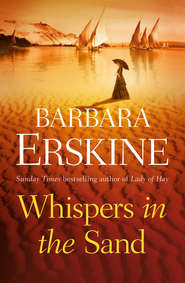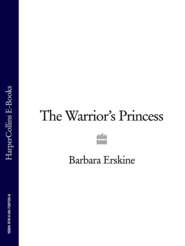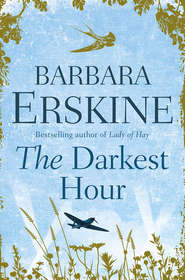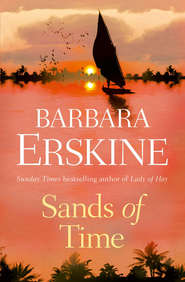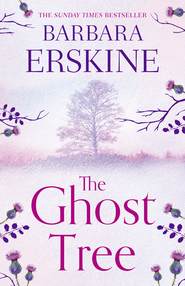По всем вопросам обращайтесь на: info@litportal.ru
(©) 2003-2024.
✖
Distant Voices
Автор
Год написания книги
2019
Настройки чтения
Размер шрифта
Высота строк
Поля
Amanda glanced through the door and then stepped inside the greenhouse. With a frightened squawk a bird flew up from the floor and beat for a moment against the glass before finding a gap and soaring out into the sunlight. She ran a finger over a work bench. The soil was dust under her hand. A rusty tobacco tin rattled as though it were full of nails. Another was full of empty, desiccated seeds. Keeping a wary eye out for the old man she wandered further in, savouring the warmth, the smell of dry earth, the buzz of a bee trapped beneath the glass. Outside the sun moved higher in the sky. The shadows shortened. The dew evaporated. The day grew hotter.
A strange sweet smell assailed her nostrils. Unpleasant. She sniffed with sudden distaste. It was the smell of decay. Near her hand, as she picked idly over the rubbish on the bench she found a packet of cigarettes, half empty, the cigarettes inside as dry as the dust. She frowned. They must have lain there abandoned for years. Her fingers hovered over them, hesitated and moved away. Inexplicably she felt a shiver tiptoe across her shoulders.
‘I’m afraid there can be no hothouse flowers this year, Bates.’ She was sitting with her back to the desk, her pen poised, the ink already dry on the nib, turning to him for only a second in her busy day. ‘We shall not be firing the boilers.’
‘Your ladyship?’ He could think of nothing to say.
‘That will be all, Bates.’
‘But the orchids, your ladyship. The frost –’
‘I’m sorry, Bates. There will be no more orchids.’ None of his business why; hide her fear and sorrow and rage from the servants at all cost. She could see it all in his face: first the bewilderment; then the realisation; then the sick disbelief. ‘That will be all Bates.’ She could say nothing else. Beneath the high frill of her silk blouse and the long strings of creamy pearls she too felt sick. In the drawer of the desk only a few inches from her hand the pile of gambling debts burned like a fire. Reginald was in the garden now. Sulking. She could see him if she moved her head slightly. ‘I’m sorry, Mama.’ That was all he had said. ‘I’m sorry, Mama.’
She closed her eyes and took a deep slow breath.
‘You may go now, Bates,’ she said.
Suddenly she could smell tobacco. Amanda looked round, afraid, expecting to see him there, but she was still alone. The greenhouse grew warmer. She put her hand up to the neck of her blouse uncomfortably and turned back towards the door. A fork and spade were leaning against one another, dug into the earth. Around their handles a trail of bindweed had woven them together.
‘She told you then.’ Cook felt a twinge of pity for the white-faced old man. He stared at her blankly. ‘She let two of the maids go this morning,’ she went on as if it would be a comfort.
He shook his head blindly. ‘The orchids. They’ll die.’
She shrugged. ‘They’re only flowers.’
He had pale blue eyes, irises as clear as the sky. Unfocused now, they swam with tears. Shocked, she stepped back.
The frosts are coming. I can smell ’em.’ The old man’s voice cracked.
She shook her head. ‘It’s the horses. Mr Williams heard them quarrelling last night. He owes thousands. This wouldn’t have happened if his old lordship were still alive.’ She shook her head and turned away. No point in telling him the rest, poor old man. It wasn’t just the orchids which were going. Half the servants; her ladyship’s jewellery; the silver; maybe even the house itself.
Leaving the greenhouse Amanda followed an overgrown track round towards the old kitchen garden. The walls which sheltered the neat beds had nurtured a tropical jungle there. She wandered over the paths and finding a bush of raspberries long grown wild picked some, sucking their sweet juice from her fingers as she remembered she had had no breakfast.
‘No!’ The shout behind her was full of pain.
She spun round, staring wildly towards the bushes. The birds had stopped singing. She could no longer hear the tennis balls. Nervously she retraced her steps towards the gnarled pine tree which towered over the glasshouse and dodged behind it, looking round. There was no sound of footsteps, no further cry. Her heart was hammering under her ribs and suddenly she was not enjoying herself any more.
She glanced over her shoulder. From here she could not see the chain-link fence at all. All round her the overgrown shrubs and tall grasses pressed in in a thick wall. She took a deep breath. Backing away from the tree she glanced to her right. A pane of glass in the greenhouse had caught the sun, blinding her. Beyond it lay the stretch of grass which had once been a lawn and beyond that the fence and home.
To her left a shrubbery – leggy, thin-leafed rhododendrons, holly, smoke trees – scrambled over one another towards the light, above them a huge acacia.
Cautiously she made her way back towards the greenhouse. Behind her she could hear a pigeon. The soft coo swelled into the silence and then died again as she saw the old man hobbling towards her. She stood transfixed with embarrassment. There was nowhere to go; nowhere to hide in time. She bit her lip and stood waiting, expecting a tirade of abuse for her trespass.
He walked straight past her. His eyes, the clear pale blue of forget-me-nots, did not move to left or right. With them steadfastly fixed on the greenhouse he hobbled within two feet of her and on down the path. Behind him the air was cold.
There would be a frost that night. The evening was clear. The smoky bonfire spread the scent of burning leaves throughout the garden; the plume of blue rose straight up into the still air as he raked them higher and higher onto the pile. He glanced over his shoulder towards the glasshouse seeing the blooms basking in the warmth through the sparkling panes: creamy petals, tinged with pink – velvet, pampered, exquisite blooms fit for the show tent. There was no breath of wind. A huge moon hung like a wraith in the blue sky, lifting over the trees. By dusk it would be at the zenith and the first ice crystals would start to crisp the grass.
He rubbed his eyes with the sleeve of his jacket, raking harder. Behind the windows of the house mother and son were once more at war. Their voices filled every room now. He had taken her pearls, her diamonds, the silver flatware and sold it for a song. More than that. He had taken her pride.
Below stairs the Williamses waited, shocked and afraid. The others had gone: the last of the maids, the under gardener, his lordship’s valet. This morning when Mrs Williams had brought the breakfast tray into the dining room her ladyship had sat there at the head of the table as usual but she had spoken no word; her face was white, almost transparent with exhaustion, the lines beneath her eyes blue-black. Staring in front of her she made no sign, spoke no word of greeting or command and putting down the tray Mrs Williams had crept away and cried.
Staring after the old man Amanda shivered. Perhaps he was blind? But surely he would have sensed her there so close to him on the path? She could see him now, pottering about in the greenhouse, bent, slow moving, deliberate in his movements as he groped amongst the rubbish on the staging.
Nearby the blackbird burst once more into song. With a sudden shock Amanda looked round. When she turned back to the greenhouse the old man was no longer in sight. She bit her lip, conscious of a rash of goose pimples across her skin and, hurrying now, tiptoed back the way she had come.
He banked up the bonfire as it grew dark, put away his tools and stood for a moment staring up at the sky. The first ice from the north was sharp. It would be a hard winter. Shrugging, he walked slowly back towards the greenhouse and went inside. Closing the door he stood for a moment in the soft darkness. The air still carried a trace of heat from the sun but already the chill was building. He lit his lantern and stood it on the staging, waiting for the flame to steady and the shadows to stop their wild jumping. The old wooden chair, where he used to sit to eat his piece and drink the tea one of the maids would bring him stood now beside his untidy workbench. He reached for the packet of cigarettes and drew one out with a shaking hand. The pull on the nicotine was good. It steadied him. Made him feel calm. Sitting there he watched the smoke drift up around his head as the temperature began to drop.
As the leaves began to droop and the brown touch of the frost claimed the first blooms, turning the plants to pulp, he threw down the cigarette end and climbed onto the chair. His long scarf made a gentle noose for the scraggy neck as he hooked the end over the curved nail in the roof support. He gave a wry smile as he pulled it tight. No more than an old turkey cock who must die at last. He shivered. Around him he could hear the plants dying. His own death, he thought, as he kicked away the chair, would be less hard.
Amanda stopped. She turned towards the greenhouse. From somewhere she could smell burning leaves. She frowned. It was an autumnal smell; aromatic and smoky, redolent of cold days and frosty nights. She shuddered again, violently this time, suddenly acutely aware of ice in the still, summer air.
The chain-link fence rose six foot in front of her, a barrier between her and home. The foothold which had hoisted her over was on the far side. For a moment she stood, defeated, aware that her neighbour was watching her from one of the upper windows of her house. With a smile and a shrug Amanda turned back towards the trees to look for something to stand on.
From the bedroom window she could see the reflections on the glass in the evening sunlight. A different angle, a different colour, it was as beautiful as in the morning, but warmer, richer, more textured.
As soon as she had dropped back onto her own square of bare earth and ducked into her house her neighbour had knocked on her door, baby on hip, and smiled conspiratorially. ‘I saw you over there. You’ve got more courage than me. I’ve wanted to explore that garden since the day we moved in.’
She was, it seemed, a kindred spirit after all. And she knew the story. The fall of the family fortunes, the gambling debts, the frost and then at last the fire that destroyed the house.
‘There is no entrance to the garden,’ she said as they sat down over a cup of coffee, the baby, quiet at last, playing at their feet. ‘My husband has seen the plans of the estate. They sold off all the land bit by bit after the fire – that was sometime between the two World Wars, I think – then the owners moved away. The son, or perhaps it’s the grandson, still owns just that last couple of acres, but he never bothered or noticed that there was no access to it. It can’t be sold. It can’t be entered. It can’t be touched by the developers or the council or anyone.’ She smiled at Amanda. ‘A secret garden – with no one to look after it. Safe. No one to spoil it.’ She paused, and added sadly, ‘No one to love it.’
‘Oh, there’s still someone to love it.’ Amanda returned the smile and bending down she gave the baby a biscuit. ‘The gardener’s still there.’
Her new friend’s eyebrows shot up. ‘You don’t mean –?’
Amanda nodded. ‘He’s still looking after it. He’s keeping it safe. And I don’t think he would mind if you and I go there from time to time. In fact, I don’t think he would even notice.’
It was an irony that she would like to have shared with Andrew but probably never could: the new house in the ancient garden; the dreams and nightmares there beneath the untrodden floor and on the far side of the fence.
The Fairy Child (#ulink_a042d92e-6fdb-5166-84ad-f5480b251de3)
The rain was streaming down the office windows as I folded my letter booking the cottage, clipped Peter’s cheque to it and pushed them both into the envelope. I looked again at the address. ‘Ishmacuild.’ The word was a magic spell in itself.
A magic spell. I repeated the phrase out loud, gazing at the orange carpet at my feet, but seeing only silver sand, rippled by wind and tide. Was that why I had chosen the island for our summer holiday; why of all the places in the guide book I had picked a tiny lonely spot like Ishmacuild: because of a magic spell?
‘Your turn to choose where we go this summer, Isobel,’ Peter had said with a grin. ‘Don’t choose the Bahamas though, will you? I don’t think the family coffers will quite run to that.’
In the five years of our marriage it had worked out that way. He had chosen one year and I the next, each seeing places we might not have dreamed of otherwise, for our tastes were so different. I, the dreamer, seeking lonely places or sites steeped in history, and Peter, the energetic sportsman, choosing lively walking, sailing and exploring holidays. Such an arrangement could have spelled disaster for some marriages, but for ours it was a stimulus and an excitement. We both enjoyed the new efforts we had to make and learned, too, far more about each other than we ever would have done had we reached a dreary compromise each year.
The next time I was in the public library I crossed to the travel shelves and scanned the titles. I knew roughly what I wanted: the Scottish Highlands and Islands. I, with the maiden name of Macdonald, had never been there. My father had always said that our family came from Scotland years ago, and although we’d often talked about it we had never visited it when I was a child. This year, I was determined, I was going to remedy that. I reached down a volume and flipped slowly through the pages, glancing at the breathtaking photographs. There were so many places to choose from, so many lovely things to see. I took the book home and with it another of stories and legends. It was in this second book that I found Ishmacuild:
Below the picturesque village, deep amongst the rocks, lies the magic fairy pool where countless generations of Macdonald women have gone by moonlight with a gift of gold to ensure the birth to the family of a son and heir …
I blinked and read on quickly. That was a very unhappy subject and one I tried to put out of my mind, but somehow over the next few days my thoughts insisted on turning back to that magic pool. After all I was a Macdonald woman, and I desperately wanted a son and heir.
The first two years of our marriage had been intentionally childless. The last three not so. Neither of us had worried at first and we had used the chance we had to go to concerts and theatres and have the kind of holidays our friends with growing families could not afford. But of late I had begun to wonder if anything could be wrong. I had not mentioned it to Peter but once or twice I had seen him glance broodingly into the pram of our baby nephew, and I knew that like me he was thinking about children.
The guide book recommended Ishmacuild for its peace and silver sands and the beauty of the surrounding mountains. It listed several addresses.





